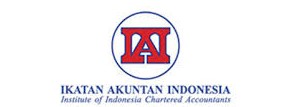Pengaruh Extraversion dan Neuroticism terhadap Audit Judgment
Abstract
This study aims to determine and analyze the influence of the big five personality on audit judgment. This research is included in the type of causality associative research using a quantitative approach. Researchers collected data using questionnaires which were distributed to 100 auditor respondents who work in public accounting firms in the cities of Padang, Pekanbaru and Batam. The data used in this research is primary data. Testing the hypothesis in this study using multiple linear regression analysis with IBM SPSS. The results of this study indicate that extra-version have an influence on audit judgment. while neuroticism and have no effect on audit judgment. Future research can use new variables or expand the population in future research.
References
Alalehto, T. (2003). Economic crime: Does personality matter? International Journal of Offender Therapy and Comparative Criminology, 47(3), 335–355. https://doi.org/10.1177/0306624X03047003007
Barrick, M. R., Mount, M. K., & Judge, T. A. (2001). Personality and Performance at the Beginning of the New Millennium: What Do We Know and Where Do We Go Next? International Journal of Selection and Assessment, 9(1–2), 9–30. https://doi.org/10.1111/1468-2389.00160
Bowditch, James L., Buono, Anthony. 2007. A Primer on Organizational Behavior, New York : John Wiley & Son, Inc.
Dewi, I. G. A. A. P., Suardikha, I. M. S., & Budiasih, I. G. A. N. (2015). Pengaruh Big Five Personality pada Kinerja Auditor Kantor Akuntan Publik Provinsi Bali. Jurnal Ilmiah Akuntansi Dan Bisnis, 10(1).
Jaffar, N. (2011). Fraud Risk Assessment and Detection of Fraud : The Moderating Effect of Personality. 6(7), 40–50. https://doi.org/10.5539/ijbm.v6n7p40
Jamilah, S., Fanani, Z., & Chandr, G. (2007). Pengaruh Gender, Tekanan Ketaatan, dan Kompleksitas Tugas terhadap Audit Judgment. Simposium Nasional Akuntansi 10, 1–30.
Kalshoven, K., Den Hartog, D. N., & de Hoogh, A. H. B. (2011). Ethical Leader Behavior and Big Five Factors of Personality. Journal of Business Ethics, 100(2), 349–366. https://doi.org/10.1007/s10551-010-0685-9
McCrae, R., & Costa, P. (1991). A five-factor theory of personality. January 1999.
Putra, A. M. T., & Rani, P. (2016). Pengaruh Gender, Kompleksitas Tugas, Pengalaman Auditor Dan Kompetensi Profesional Terhadap Audit Judgement. Jurnal Akuntansi Keuangan, 5(2).
Rustiarini, N. W. (2014). Sifat Kepribadian dan Locus of Control Sebagai Pemoderasi Hubungan Stres Kerja dan Prilaku Disfungsional Audit. Simposium Nasional Akuntansi XVI, 11(Juni 2014), 1–19.
Saadullah, S. M., & Bailey, C. D. (2014). The “big five personality traits” and accountants’ ethical intention formation. Research on Professional Responsibility and Ethics in Accounting, 18, 167–191. https://doi.org/10.1108/S1574-076520140000018006
Sherman, R. A., & Funder, D. C. (2009). Evaluating correlations in studies of personality and behavior: Beyond the number of significant findings to be expected by chance. Journal of Research in Personality, 43(6), 1053–1063. https://doi.org/10.1016/j.jrp.2009.05.010
Shovuro, S. (2017). Sifat Kepribadian sebagai Pemoderasi Hubungan Tekanan Ketaatan dan Audit Judgment.
Suryarini, T., Yulianto, A., Shovuro, S., Widiatami, A. K., & Semarang, U. N. (2022). Obedience pressure and audit judgment: does the auditor personality have a role? 6(2), 197–210.







.png)
.png)
